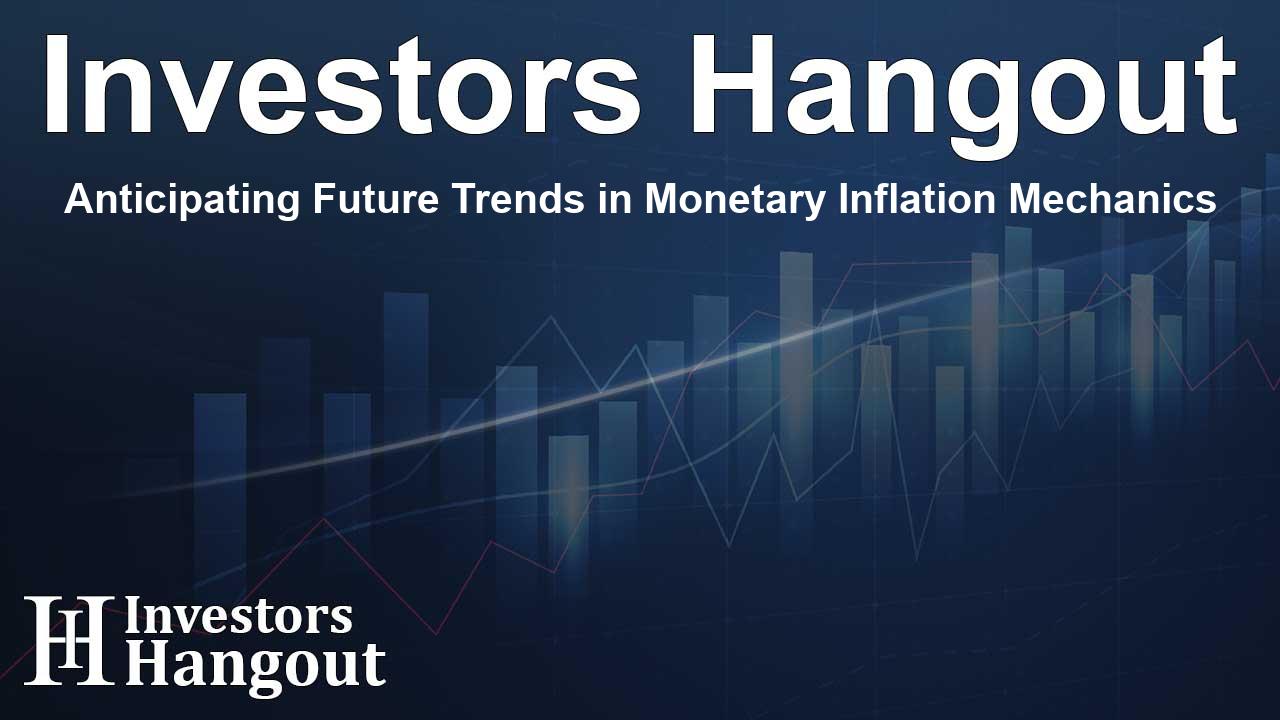Anticipating Future Trends in Monetary Inflation Mechanics

Anticipating Future Dynamics of Monetary Inflation
In today's economic landscape, government interventions are anticipated to exert significant upward pressure on the prices of various commodities, goods, and services. This dynamic is poised to restrict the central bank's capacity to introduce substantial inflationary measures in the money supply. It seems that for the time being, we will not experience the kind of "deflation scares" that previously triggered extensive money creation through quantitative easing (QE) from 2008 to 2021. Nevertheless, our observations suggest that the overall money supply will continue its upward trajectory.
The Historical Context of Monetary Inflation
Reflecting on the period leading up to 2008, the U.S. experienced considerable monetary inflation without undertaking QE programs. This monetary inflation was primarily driven by commercial banks which possess the unique ability to generate new money (bank deposits) through lending and purchasing securities. As a result, prior to the implementation of QE, various instabilities in the economy were mitigated through this mechanism of deposit creation.
Future Waves of Money Creation
Looking ahead, we predict that there will indeed be future waves of monetary inflation, propelled once again by the activities of commercial banks. These institutions are legally empowered to create money from essentially nothing. Thus, it's a natural expectation that they will continue to engage in this practice, similar to their actions in the past, particularly when the economy exhibits signs of growth.
The Challenge of Economic Contraction
However, challenges may arise when the economy weakens considerably and commercial banks reduce their credit expansion due to a decline in eligible private borrowers. We speculate that this issue might be alleviated through incentives or regulations that encourage commercial banks to purchase more government debt. Such actions would require these banks to generate new money, which the government could subsequently inject into the economy through various spending initiatives.
Central Bank's Limited Role in Future Economic Weakness
Interestingly, we do not foresee large-scale asset monetization through QE by the Federal Reserve in reaction to any future economic downturns. This hesitation is primarily rooted in the reality that prevailing "price inflation" metrics may not provide sufficient justification for such measures. Instead, the responsibility for driving monetary inflation will increasingly fall to commercial banks, as was the case prior to the 2008 financial crisis.
Conclusion: The Future of Monetary Policy
In summary, while there appears to be a forthcoming era filled with potential monetary inflation, the mechanics of this inflation will not be directly orchestrated by the Federal Reserve. Instead, the onus will rest on commercial banks to navigate these inflationary waters, reminiscent of the trends seen before 2008. Therefore, as we move forward, staying attuned to the intricate relationship between commercial banking practices and monetary policy will be crucial for understanding economic developments.
Frequently Asked Questions
What is monetary inflation?
Monetary inflation refers to the increase in the money supply in an economy, which can lead to rising prices of goods and services.
How do commercial banks create money?
Commercial banks create money by issuing loans, which effectively adds to the money supply through deposits in the banking system.
What role does the central bank play in controlling inflation?
The central bank, such as the Federal Reserve, aims to control inflation through monetary policy tools, including interest rate adjustments and QE programs.
What factors influence future monetary inflation?
Factors influencing future monetary inflation include government spending, commercial bank lending practices, and overall economic conditions.
Is large-scale QE likely in the future?
Large-scale QE seems unlikely in response to economic downturns due to the current inflation metrics; instead, efforts may shift towards encouraging bank lending.
About The Author
Contact Hannah Lewis privately here. Or send an email with ATTN: Hannah Lewis as the subject to contact@investorshangout.com.
About Investors Hangout
Investors Hangout is a leading online stock forum for financial discussion and learning, offering a wide range of free tools and resources. It draws in traders of all levels, who exchange market knowledge, investigate trading tactics, and keep an eye on industry developments in real time. Featuring financial articles, stock message boards, quotes, charts, company profiles, and live news updates. Through cooperative learning and a wealth of informational resources, it helps users from novices creating their first portfolios to experts honing their techniques. Join Investors Hangout today: https://investorshangout.com/
The content of this article is based on factual, publicly available information and does not represent legal, financial, or investment advice. Investors Hangout does not offer financial advice, and the author is not a licensed financial advisor. Consult a qualified advisor before making any financial or investment decisions based on this article. This article should not be considered advice to purchase, sell, or hold any securities or other investments. If any of the material provided here is inaccurate, please contact us for corrections.
